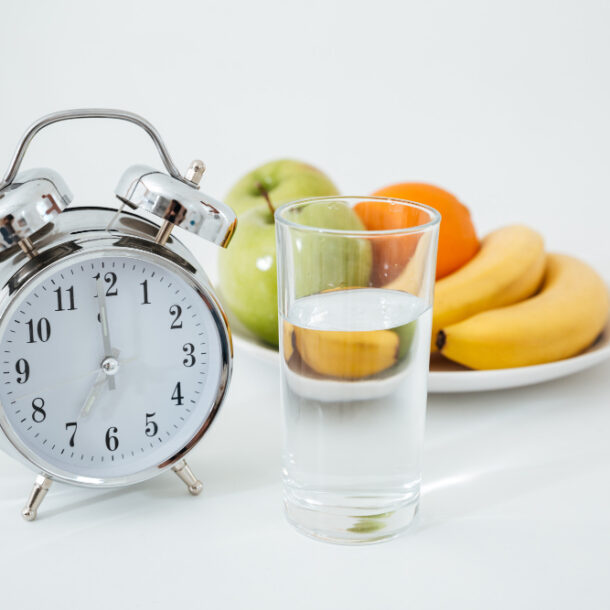
How Alcohol Affects Men’s Hormones and Energy
Introduction: More Than Just a Drink
For many men, a few beers after work or a weekend braai with friends seems harmless — even relaxing. But beyond the social buzz, alcohol has powerful effects on your hormones, energy levels, and overall health that can quietly build up over time.
According to Mens Health Clinic South Africa, excessive or even regular alcohol consumption can disrupt testosterone production, weaken muscle growth, lower libido, and drain your daily energy.
Understanding how alcohol interacts with your body helps you make smarter choices — without necessarily giving it up completely.
How Alcohol Disrupts Hormonal Balance
Your hormones are chemical messengers that regulate everything from metabolism and mood to muscle mass and fertility. Alcohol interferes with these signals in several key ways:
1. Lowers Testosterone Production
-
The liver plays a major role in processing hormones. When it’s busy metabolizing alcohol, it can’t efficiently produce or regulate testosterone.
-
Alcohol also increases aromatase, an enzyme that converts testosterone into estrogen — effectively lowering your male hormone levels.
2. Increases Cortisol (the Stress Hormone)
-
Cortisol rises when you drink, especially in large amounts.
-
High cortisol suppresses testosterone, slows muscle repair, and contributes to fat storage — particularly around the belly.
3. Disrupts Growth Hormone (GH)
-
GH is vital for recovery, muscle development, and metabolism.
-
Studies show that heavy drinking reduces GH secretion, especially during sleep — robbing your body of key repair time.
The Impact of Alcohol on Energy and Fatigue
Feeling tired after drinking isn’t just a hangover — it’s a sign of deeper metabolic disruption.
Here’s why alcohol drains your energy:
-
Blood Sugar Fluctuations: Alcohol causes your blood sugar to spike, then crash, leaving you feeling sluggish and hungry.
-
Dehydration: Alcohol is a diuretic, meaning it flushes out fluids and electrolytes essential for energy and muscle function.
-
Poor Sleep Quality: Even if you fall asleep faster after drinking, alcohol reduces deep (REM) sleep — the stage where recovery happens.
-
Mitochondrial Stress: These are your body’s energy factories. Alcohol damages them, slowing metabolism and reducing stamina.
Alcohol and Men’s Reproductive Health
For men trying to conceive or maintain sexual performance, alcohol can be a silent enemy.
Effects on Fertility:
-
Decreases sperm count and quality
-
Reduces testosterone and libido
-
Increases oxidative stress, which damages sperm DNA
Effects on Sexual Function:
-
Short-term: Alcohol may lower inhibitions and boost confidence.
-
Long-term: It leads to erectile dysfunction (ED) due to hormonal imbalance and reduced blood flow.
Alcohol, Muscle, and Fitness Performance
If you’re working hard in the gym but also drinking regularly, you might be sabotaging your results.
Why Alcohol Hurts Muscle Gains:
-
Impairs protein synthesis, slowing muscle repair after workouts.
-
Depletes testosterone, a key hormone for muscle growth.
-
Increases inflammation, which delays recovery.
-
Reduces coordination and focus, affecting training quality.
Even two or three drinks after exercise can reduce your body’s ability to rebuild muscle tissue a fact often overlooked by men chasing both fitness and social balance.
The Mental and Emotional Toll
Hormones aren’t just physical — they affect your mood, motivation, and focus.
How Alcohol Affects the Brain:
-
Temporarily increases dopamine, giving a “feel-good” buzz.
-
Over time, lowers baseline dopamine levels, leading to fatigue, anxiety, and lack of motivation.
-
Interferes with serotonin, which can cause mood swings and depression.
The Good News: Recovery Is Possible
The body is remarkably resilient. By reducing or eliminating alcohol, you can restore balance and regain vitality.
How to Support Hormone Recovery:
-
Take a break: Even 3–4 weeks without alcohol can significantly improve testosterone and energy.
-
Eat nutrient-dense foods: Include zinc, magnesium, and vitamin B complex to boost hormone production.
-
Stay hydrated: Drink plenty of water and electrolytes.
-
Get enough sleep: Quality rest resets hormone balance.
-
Exercise regularly: Strength training naturally raises testosterone and reduces cortisol.
How Much Alcohol Is “Safe” for Men?
There’s no completely “safe” amount, but moderation makes a big difference.
Recommended Guidelines:
-
Up to 2 drinks per day for men, or no more than 14 per week.
-
At least two alcohol-free days per week to allow hormonal recovery.
-
Avoid binge drinking (more than 5 drinks in one sitting).
Remember: everyone’s tolerance and hormonal sensitivity are different what’s “moderate” for one man might be harmful for another.
When to Seek Professional Help
If you notice symptoms like:
-
Constant fatigue
-
Low libido
-
Weight gain despite exercise
-
Poor concentration or mood swings
…it may be time to have your hormone levels checked.
The team at Mens Health Clinic South Africa specializes in men’s hormone optimization, fertility, and lifestyle management. They provide confidential assessments and evidence-based treatments to restore balance and improve performance naturally.
Conclusion: Rethink the Drink
A cold beer or a glass of wine now and then isn’t the enemy — but understanding how alcohol affects your hormones, energy, and vitality empowers you to make smarter choices.
Your testosterone, metabolism, and mental clarity all depend on balance. Reducing alcohol intake can dramatically improve how you look, feel, and perform — both in and out of the gym.
For personalized hormone assessments and wellness guidance, visit Mens Health Clinic South Africa. Their experts help men regain their strength, energy, and confidence — one healthy choice at a time.
# 1 Men's Clinic that delivers results, only using natural herbs.
2025 © Men's Clinic, All Rights Reserved.

